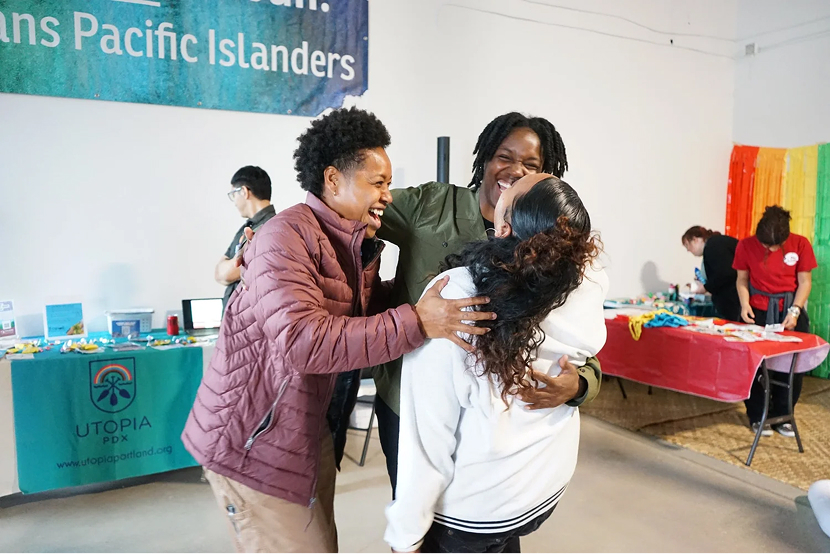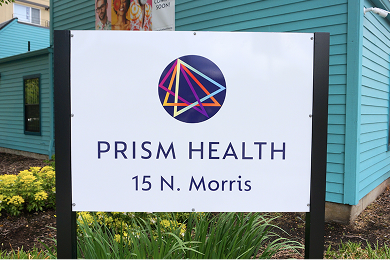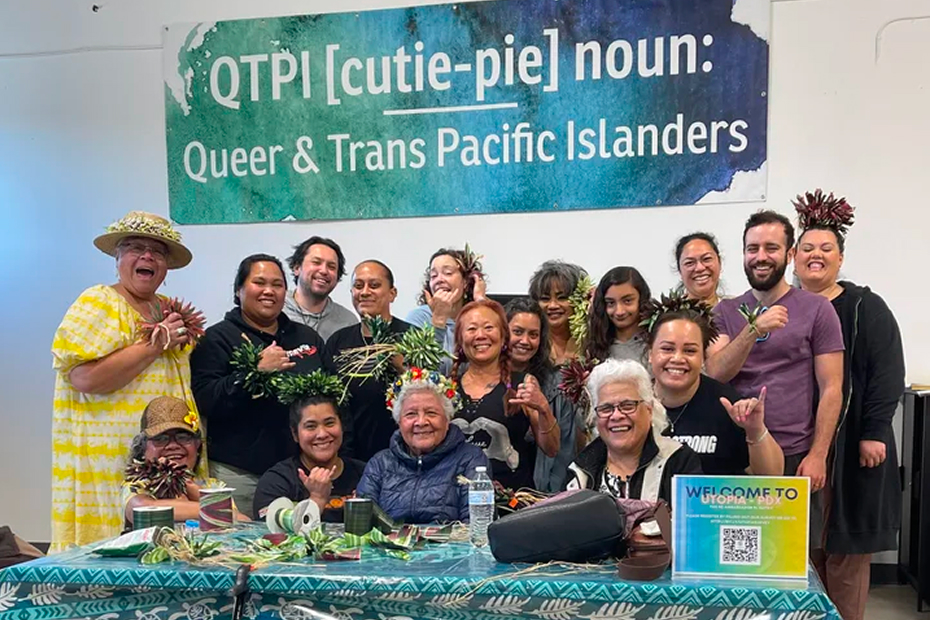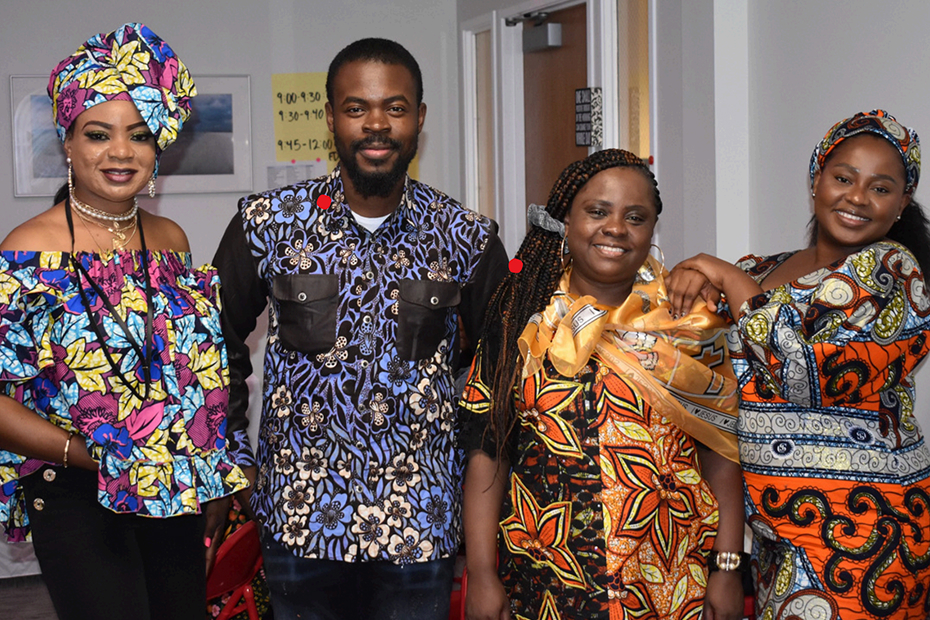In this story
CareOregon’s investment in culturally responsive, inclusive care

The power of Medicaid at work
CareOregon’s investment in culturally responsive, inclusive care – and what’s at risk
Quality health care for Medicaid members goes far beyond visits to a doctor: It’s shaped by culturally specific programs, trusted community spaces and inclusive supports and care that meet members where they are, in ways traditional health care often cannot. But today, unprecedented federal funding cuts and grant cancellations threaten these community-rooted models.
The following examples show how CareOregon's investments in culturally responsive care result in significantly increased access within underserved communities—and what’s at risk when that support disappears.
Launching the Prism Health | Morris Clinic
In June 2024, Cascade AIDS Project (CAP) opened its second Prism Health clinic at 15 N. Morris Street, in Portland’s historically Black Albina neighborhood. CareOregon invested funds toward renovation, construction and start-up staffing.

Founded in 1983, CAP is Oregon and Southwest Washington’s oldest and largest community-based provider of HIV services, housing, education and advocacy. Prism Health is CAP’s primary care and behavioral health program specializing in affirming, patient-centered care for the LGBTQ+ community and anyone seeking compassionate care. By adding a second clinic, Prism Health has expanded capacity for the services it provides.
In its first year, Prism Health | Morris Clinic served more than 800 patients. In 2024, CAP’s average client growth per month was 40—but after the Morris Clinic opened, the organization now sees an average growth of 117 new additional clients per month across its two clinics.
By investing in the Prism Health | Morris clinic, CareOregon continues a legacy of serving marginalized communities, including LBGTQ+ individuals, people living with HIV and Medicaid members seeking compassionate, inclusive care. Yet with federal threats to gender-affirming care and other safety-net programs, essential lifelines like the Morris Clinic face uncertainty.
UTOPIA PDX’s QTPI Youth Mental Health Project
Another vital organization facing hardship is UTOPIA PDX, a grassroots non-profit led by and for Queer and Trans Pacific Islanders (QTPI). In 2023, CareOregon awarded UTOPIA PDX a grant for its QTPI Youth Mental Health Project—an innovative program providing culturally specific, affirming mental health support to QTPI Pasifika youth.

This program offered QTPI youth safe spaces for leadership development, cultural pride and healing from trauma. It included intergenerational programming, such as grief workshops serving participants from age 6 to 70. Leaders described it as “lifesaving”—which is particularly critical for queer Hawaiian and Pacific Islander communities, where suicide and self-harm rates are among the highest in the nation.
But in 2025, UTOPIA had to scale back and reimagine the project due to deep federal Medicaid and Department of Education cuts.
The broader organization has also suffered. In the past year, UTOPIA’s staff dropped from fifteen to five, most now part-time. The team can no longer provide wraparound support such as food, housing or utilities, leaving families without the sanctuary spaces mainstream systems rarely provide.
Today, UTOPIA survives through community mutual aid and solidarity efforts.
Greater NW Community Health Collective
In Multnomah County, the Greater NW Community Health Collective collaborates with BIPOC community members to advance health equity and economic stability. Through its two Community Health Worker (CHW) Training Programs—almost entirely funded by CareOregon through multi-year grants—the organization equips BIPOC and Oregon Health Plan (OHP)/Medicaid members to support and serve their own communities.
The CHW I Training Program is the only OHA-recognized CHW course in Oregon designed specifically for BIPOC participants, offering safe spaces to build lasting networks of trust. The program graduates 25 participants per cohort and fosters cultural safety, peer learning and lasting professional networks. A more advanced CHW II program has so far graduated 14 participants trained in clinical basics like interpreting labs, understanding care team roles and conducting patient documentation—skills that help graduates transition into clinic-based careers. In addition to providing health education to community members and connecting people with vital services, CHW training program graduates also volunteer at health fairs and mobile clinics, reaching thousands of community members.
While this type of training typically costs $1,200–$1,500 per participant, the Collective offers it at no cost, thanks to CareOregon’s support. But with Medicaid cuts looming, future funding for this program is in jeopardy.
Why Medicaid matters in Oregon

These programs demonstrate the power of Medicaid: expanding access to care, creating affirming spaces for youth and building a diverse, trusted health workforce. But each is fragile, and without sustained Medicaid support, Oregon’s most effective community-rooted programs could vanish.
Medicaid dollars don’t just fund doctor visits. They sustain programs that address inequities, empower youth and build culturally specific systems of care. Without sustainable Medicaid funding, Oregon risks losing the very programs that help members thrive beyond the exam room.
Despite fiscal and systemic challenges, CareOregon remains steadfast in supporting culturally specific, inclusive care. When we protect Medicaid, we protect the lifelines that protect Oregon’s communities.
_____________________________________________________________________________
Investments in Action series
Our "Investments in Action" series highlights the transformative power of CareOregon's strategic investments in health and wellbeing. Through these stories, we explore how our support goes beyond traditional funding roles and is helping to close gaps in health care access and community services. Despite challenges within the Medicaid space, we remain committed to centering these important narratives of community strength and resilience.
